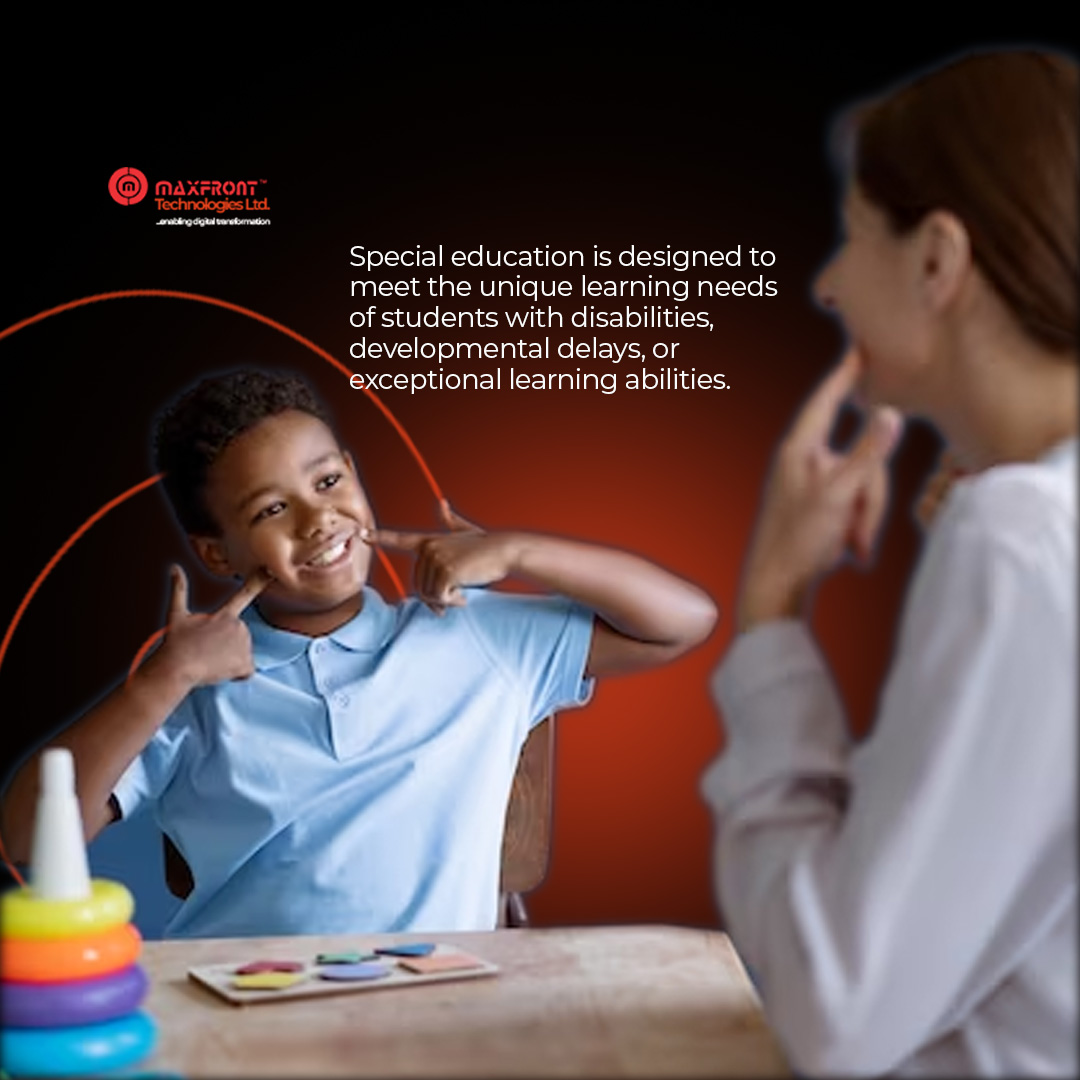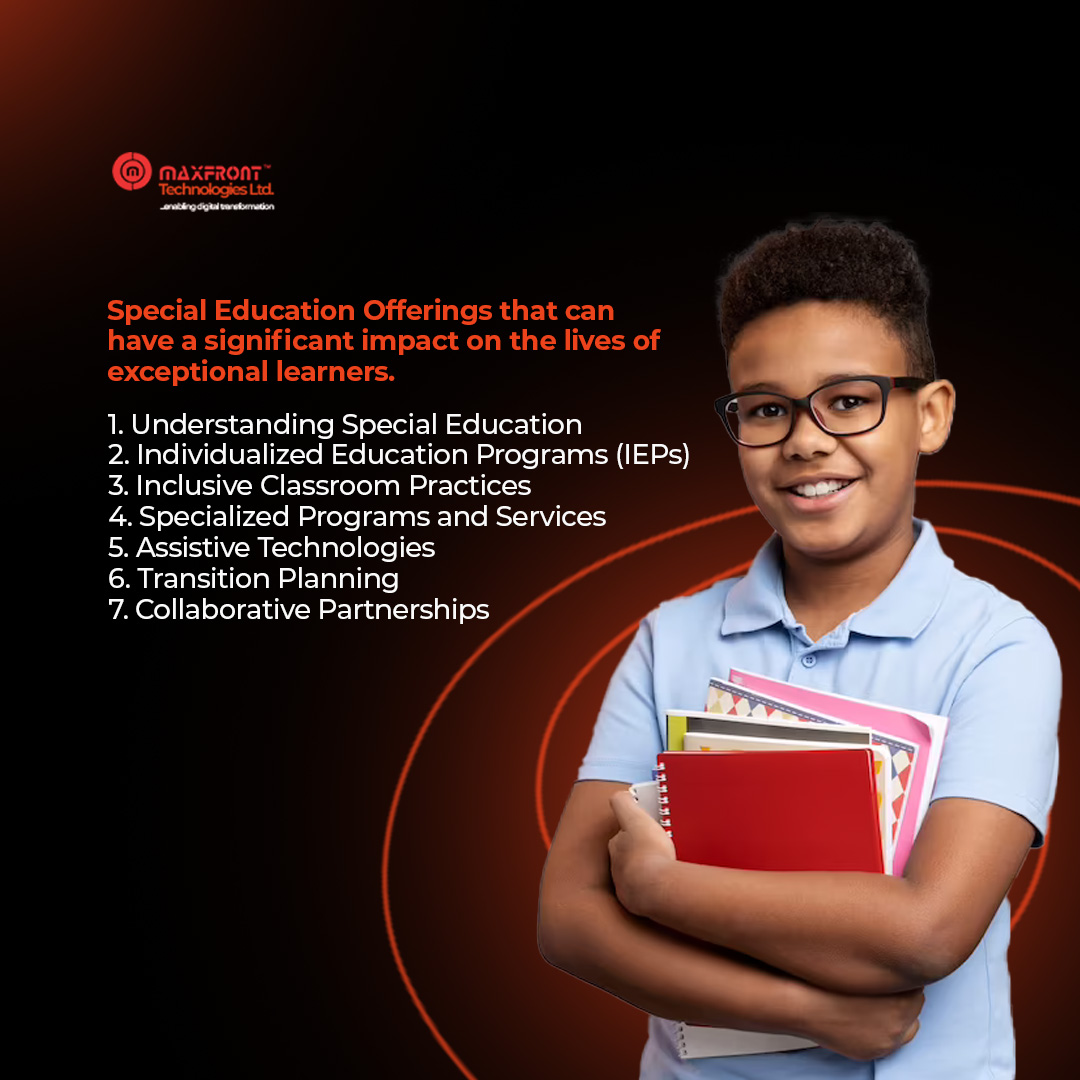
Every child deserves a fair chance at success and a fulfilling educational experience, regardless of their unique learning needs. Special education offerings ensure that children with diverse abilities receive the support, resources, and opportunities they need to thrive. In this blog post, we will delve into the world of special education, exploring the various programs, services, and approaches available to champion every child’s educational journey. Let’s embark on this enlightening exploration together!
Special education is designed to meet the unique learning needs of students with disabilities, developmental delays, or exceptional learning abilities. It involves providing specialized instructional strategies, support services, and resources tailored to the individual needs of each student. Special education aims to ensure that all students, regardless of their abilities, have equal access to education and opportunities for academic, social, and emotional growth.
Special education offers a range of programs and services tailored to address specific learning challenges. These offerings aim to provide personalized instruction, support, and interventions to help students overcome barriers and achieve their full potential. Here are 7 Special Education Offerings that can have a significant impact on the lives of exceptional learners.

- Understanding Special Education:
Special education is a specialized approach that addresses the unique learning requirements of students with disabilities, developmental delays, or exceptional learning abilities. It aims to provide individualized support, fostering academic, social, and emotional growth while promoting inclusivity.
- Individualized Education Programs (IEPs):
One of the cornerstones of special education is the creation of Individualized Education Programs (IEPs). These customized plans outline specific educational goals, accommodations, and support services tailored to each student’s unique needs. IEPs bring together teachers, parents, and specialists to collaborate on optimizing the learning experience.
- Inclusive Classroom Practices:
Inclusive classroom practices integrate students with special needs into regular education environments, promoting interaction, collaboration, and mutual respect among all students. Inclusive classrooms create an environment where every child can learn and grow together through differentiated instruction, assistive technologies, and a modified curriculum.
- Specialized Programs and Services:
Special education offerings encompass a range of specialized programs and services designed to address specific disabilities or learning challenges. These may include speech therapy, occupational therapy, physical therapy, behaviour intervention, and more. These programs ensure students can overcome obstacles and reach their full potential by providing targeted interventions and support.
- Assistive Technologies:
The advancement of technology has revolutionized special education. Assistive technologies, such as communication devices, sensory tools, and educational software, empower students with disabilities to participate in learning actively. These innovative tools bridge the gap, enabling students to effectively access and engage with educational content.
- Transition Planning:
Transition planning becomes vital in special education as students progress through their educational journey. Transition plans prepare students for life after graduation, focusing on further education, vocational training, employment, and independent living skills. Transition planning ensures a smooth and successful transition into adulthood by equipping students with the necessary tools and resources.
- Collaborative Partnerships:
Special education offerings thrive on collaborative partnerships involving educators, parents, specialists, and the community. Open lines of communication, teamwork, and shared goals are instrumental in creating a supportive network that champions every child’s journey. Collaborative efforts foster an inclusive environment where students can flourish, building a solid foundation for lifelong learning.
Benefits of Special Education
Special education offers personalized instruction tailored to meet the specific learning needs of each student. It also creates a supportive and inclusive learning environment where students feel valued, accepted, and understood. Additionally, special education often incorporates assistive technologies, such as communication devices, sensory aids, and adaptive tools, to enhance learning experiences and remove barriers to participation. Individualized Education Plans (IEPs) are a vital component of special education, which outline specific goals, accommodations, and support services for each student. IEPs are developed collaboratively by teachers, parents, and specialists, ensuring a comprehensive and holistic approach to address the student’s unique needs.
Conclusion
Special education is vital in providing individualized support, creating inclusive learning environments, and promoting academic and personal growth for students with diverse learning needs. It empowers students to overcome challenges, develop their strengths, and succeed academically and in life.
Special education offerings are essential for championing every child’s journey, empowering them to overcome challenges and achieve their full potential. We can create an inclusive and supportive educational environment through individualized education, inclusive classroom practices, specialized programs and services, assistive technologies, transition planning, and collaborative partnerships.
Let us celebrate the diversity of our students and commit to providing the necessary resources and opportunities to ensure that every child’s educational journey is fulfilling and successful. Together, we can make a difference in the lives of these extraordinary learners.